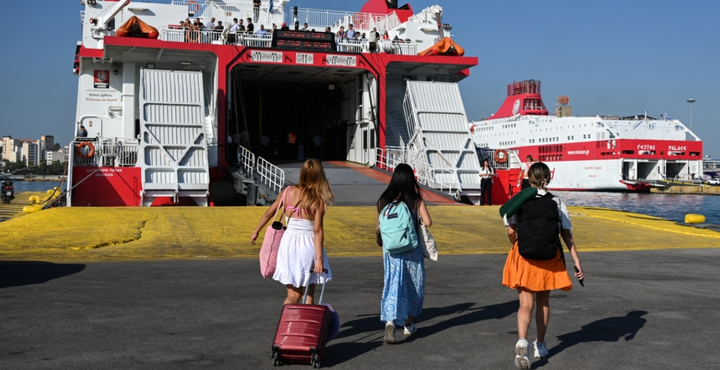In a highly provocative article, published in the Anadolu Agency, in which he distorts the reality, Turkish former rear admiral Cihat Yaycı writes about ” Greece’s desire to resurrect the “Great Idea and the Byzantine Empire” and about Turkey’s non-obligation “to follow the Law of the Sea “.
In an article that looks like delirium, the former top official of the Turkish navy analyses the “three questions that arise about the relations with Greece and the importance of the “Blue Homeland”, accusing Greece of expansionist visions and demands “as if he had won a war.”
A few days before the second round of Turkish elections, Cihat Yaycı wonders “what changes Greece can expect from Turkey in terms of its foreign policy after the elections” and notes that its “goals and ambitions have never changed”.
“I believe that Greece will expect Turkey to accept all its demands regarding the Aegean, the Eastern Mediterranean, the Cyprus Sea, and the extension of 6 nautical miles of its territorial waters,” the former Turkish rear admiral said in his analysis.
He continues, also speaking of the “Greek Cypriot government” that it wants, together with Greece, to annul the – illegal – Turkish-Libyan memorandum and also to give back the Cypriot lands to the Greek Cypriots.
“The main difference in Greece-Turkey relations is the ‘Great Idea'”
Continuing his delusional analysis, Yaycı sees “war”, writing that “Greece wants Turkey to recognise all these demands as if it has won it in a war and forces it to capitulate and Athens has the support of other states, and even some actors within Turkey, for these demands.
However, the theorist of the “Blue Homeland” does not stop and continues his provocative rhetoric against Greece, accusing Athens of “wanting to revive the Byzantine Empire” because the “main difference between the two countries is the “Great Idea” of Greece”.
“The main difference in Greece-Turkey relations is the “Great Idea”, which revolves around the ideology of turning Greece into a Byzantine Empire. This ideology poses a fundamental obstacle to building good relations between the two countries in various fields, from Cyprus to the Aegean Sea and from the Aegean to Western Thrace,” writes Yaycı.
The former Turkish rear admiral notes that “Turkey has handed over land six times to Greece and now it has no land or even a drop of water to hand over to Greece”.
He accuses Greece of causing problems in bilateral relations “with its demands” and, distorting the reality, pointing out that “Turkey has no demand from Greece except that past agreements be respected”.
“Turkey expects Greece to abide by the provisions of the Lausanne Treaty of 1923 and the Paris Peace Treaty of 1947 as it aims to establish and maintain a relationship based on peace and friendship, within the framework of the NATO neighborhood and alliance.
Attempting to justify the narrative of the “Blue Homeland”, its originator himself explains that “it is an agreement that ensures the sovereign rights of Turkey” and continues:
“The doctrine of the Blue Homeland aims to achieve friendship, peace, security, and stability based on equality and exploitation, within the framework of agreements and customary law signed by both countries, which include law, diplomacy, energy, security, tourism, sports, fishing, travel, and other sectors,” writes Yaycı.
“The Blue Homeland is a nationalist, Turkish-centric, national commitment of our country to the seas that transcends any party and ideology,” he concludes.


































